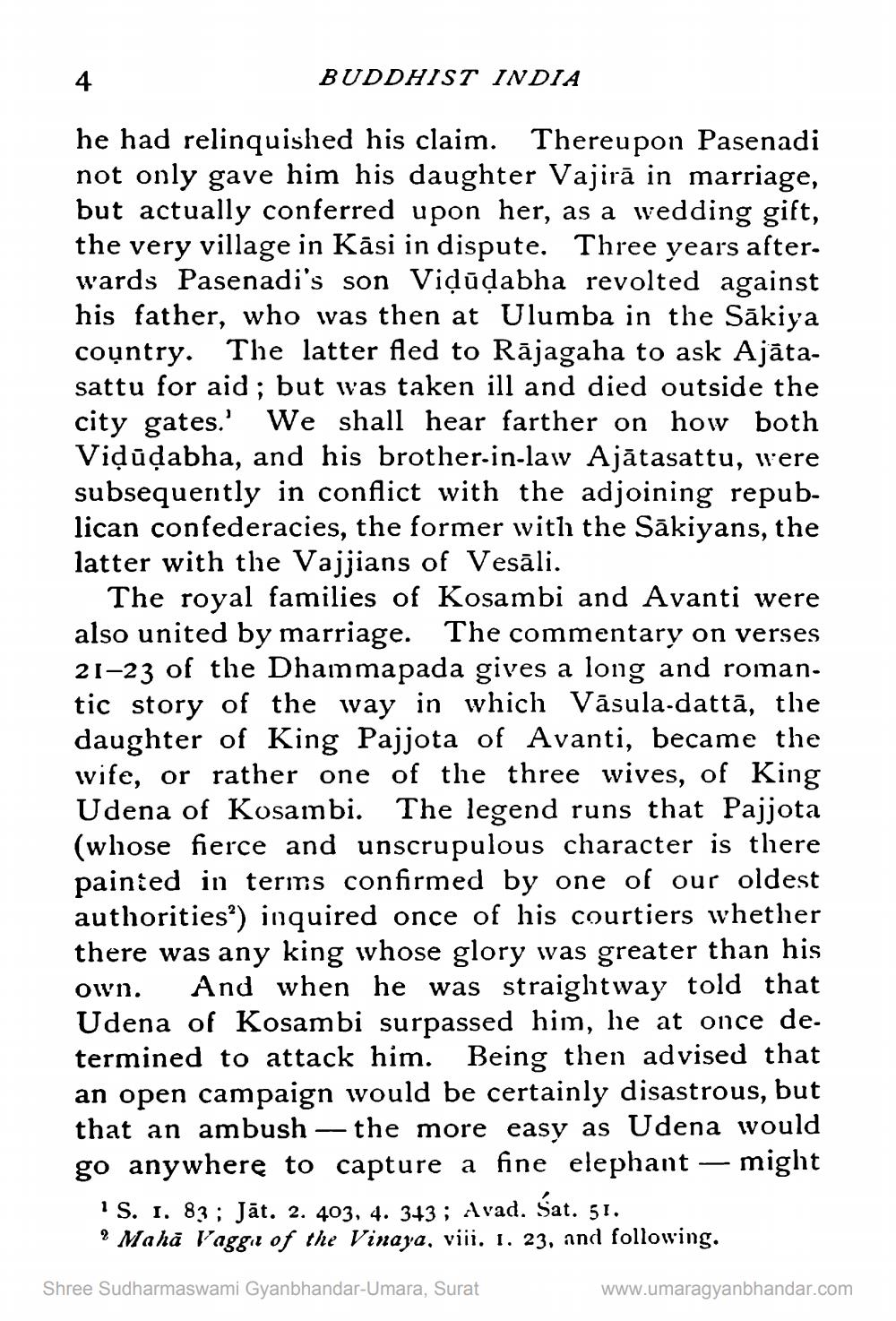________________
BUDDHIST INDIA
4
he had relinquished his claim. Thereupon Pasenadi not only gave him his daughter Vajirā in marriage, but actually conferred upon her, as a wedding gift, the very village in Kāsi in dispute. Three years afterwards Pasenadi's son Viḍūḍabha revolted against his father, who was then at Ulumba in the Sakiya country. The latter fled to Rajagaha to ask Ajātasattu for aid; but was taken ill and died outside the city gates.' We shall hear farther on how both Viḍūḍabha, and his brother-in-law Ajātasattu, were subsequently in conflict with the adjoining republican confederacies, the former with the Sākiyans, the latter with the Vajjians of Vesāli.
The royal families of Kosambi and Avanti were also united by marriage. The commentary on verses 21-23 of the Dhammapada gives a long and romantic story of the way in which Vasula-datta, the daughter of King Pajjota of Avanti, became the wife, or rather one of the three wives, of King Udena of Kosambi. The legend runs that Pajjota (whose fierce and unscrupulous character is there painted in terms confirmed by one of our oldest authorities') inquired once of his courtiers whether there was any king whose glory was greater than his own. And when he was straightway told that Udena of Kosambi surpassed him, he at once determined to attack him. Being then advised that an open campaign would be certainly disastrous, but that an ambush the more easy as Udena would go anywhere to capture a fine elephant - might 1 S. 1. 83; Jāt. 2. 403, 4. 343; Avad. Sat. 51.
-
Maha Vagga of the Vinaya, viii. 1. 23, and following.
―
Shree Sudharmaswami Gyanbhandar-Umara, Surat
www.umaragyanbhandar.com




